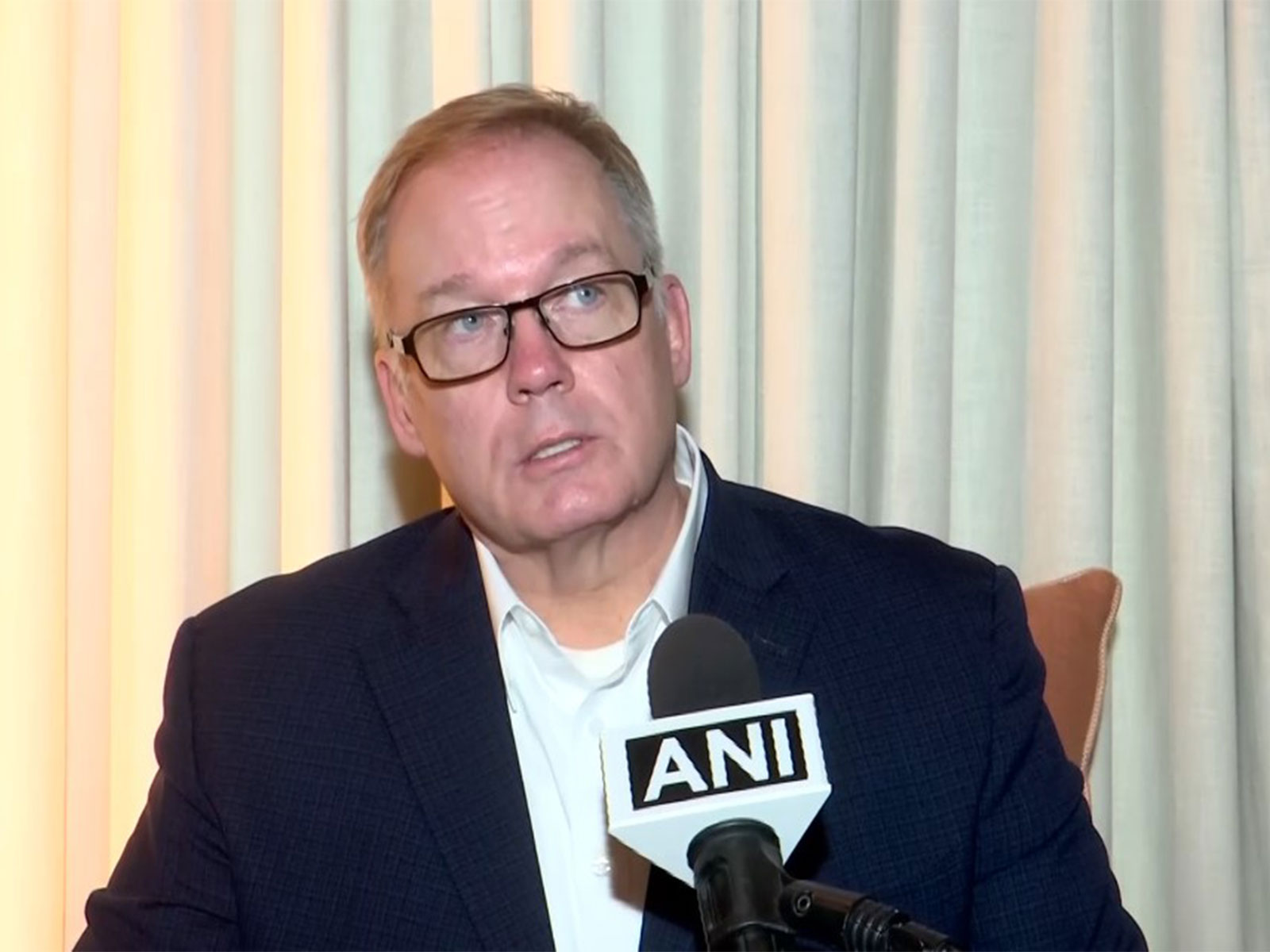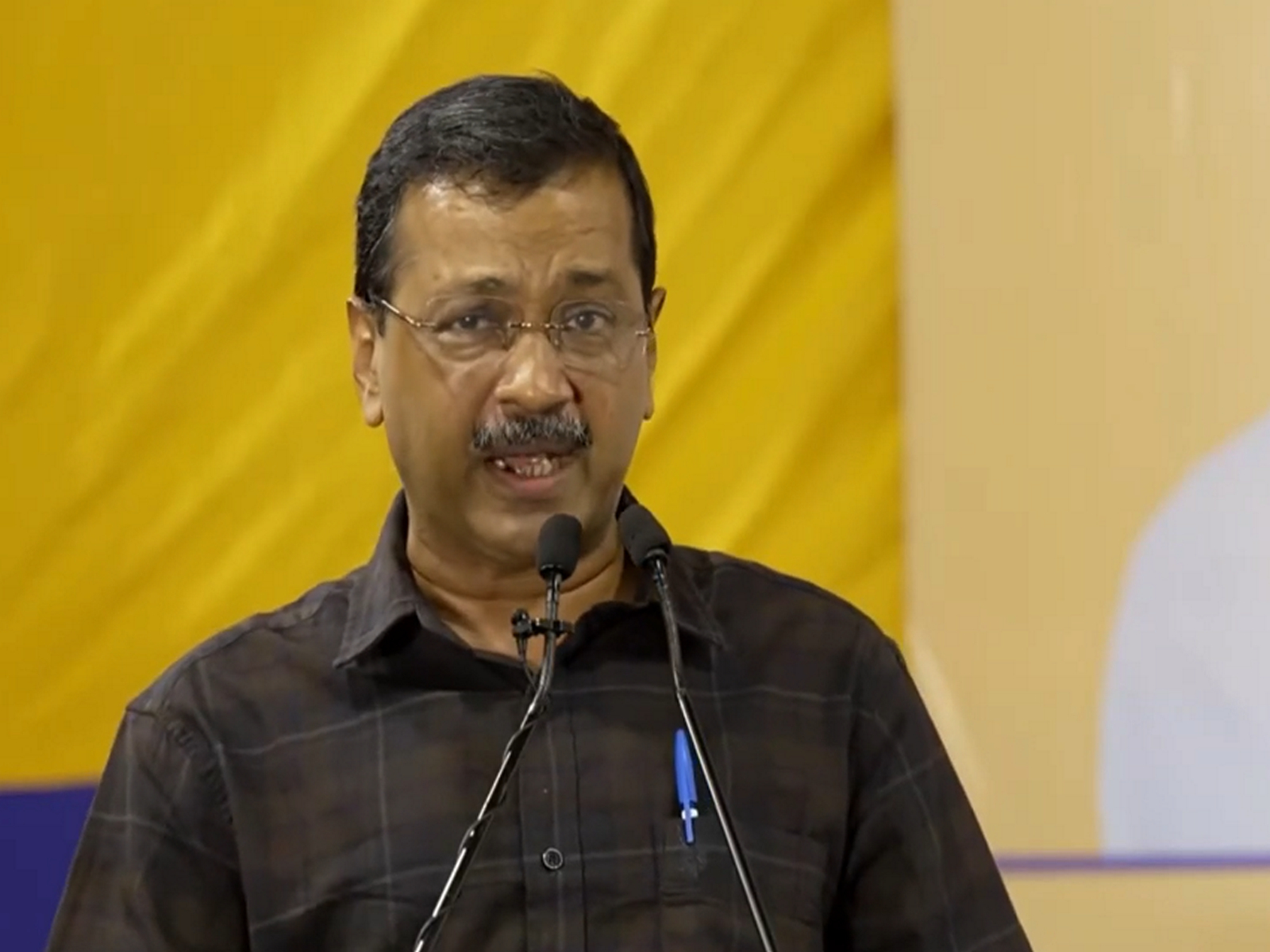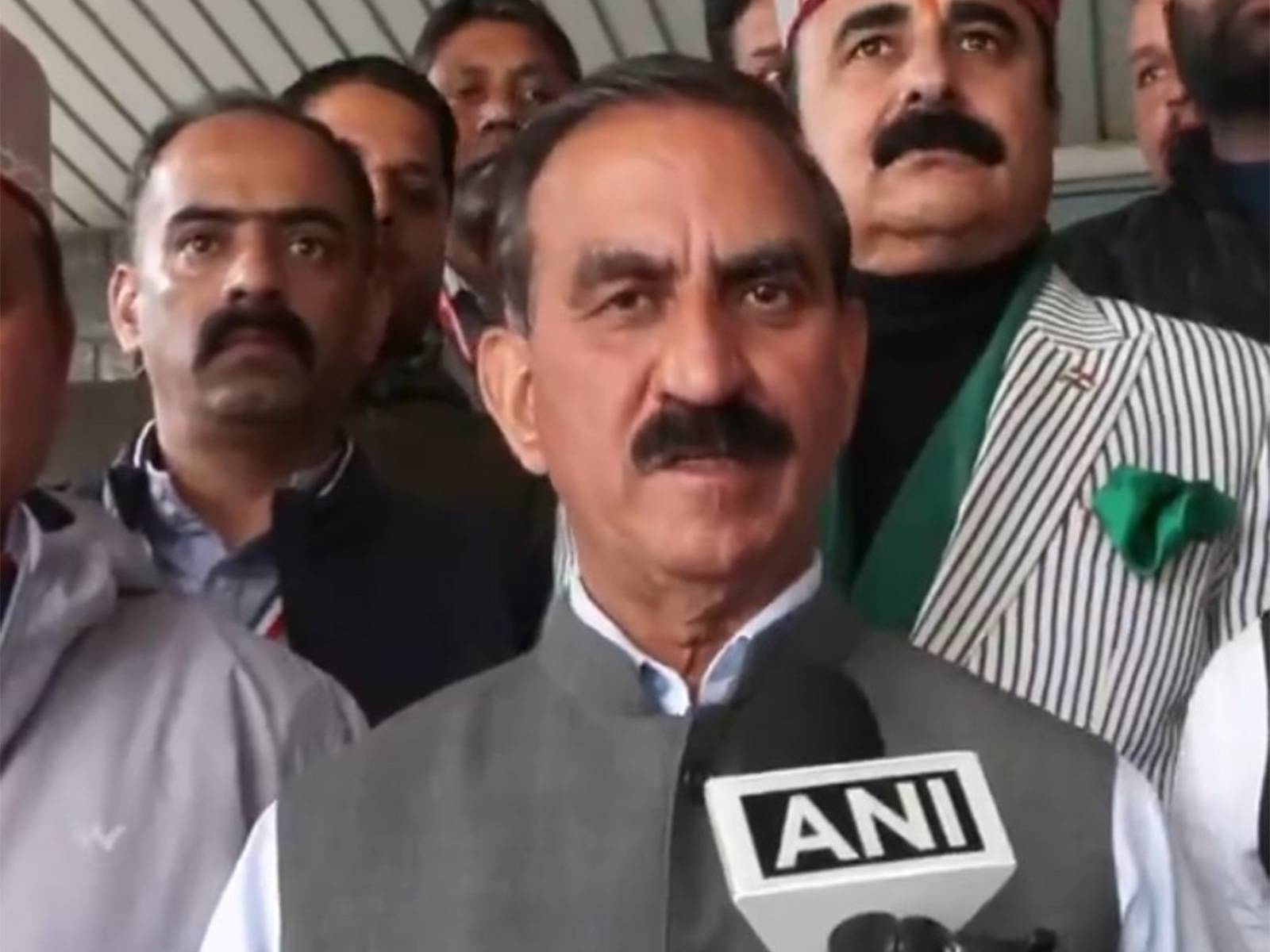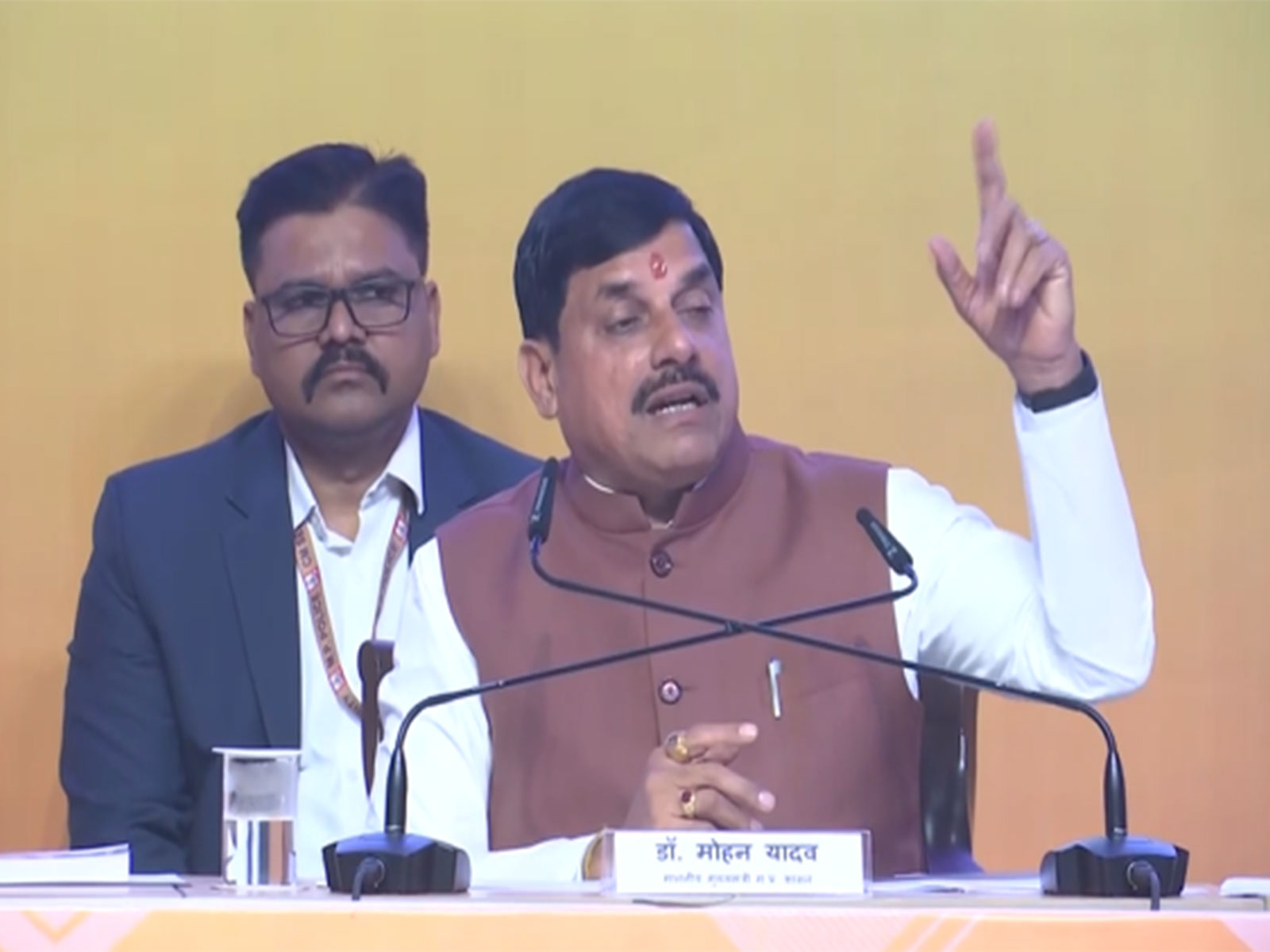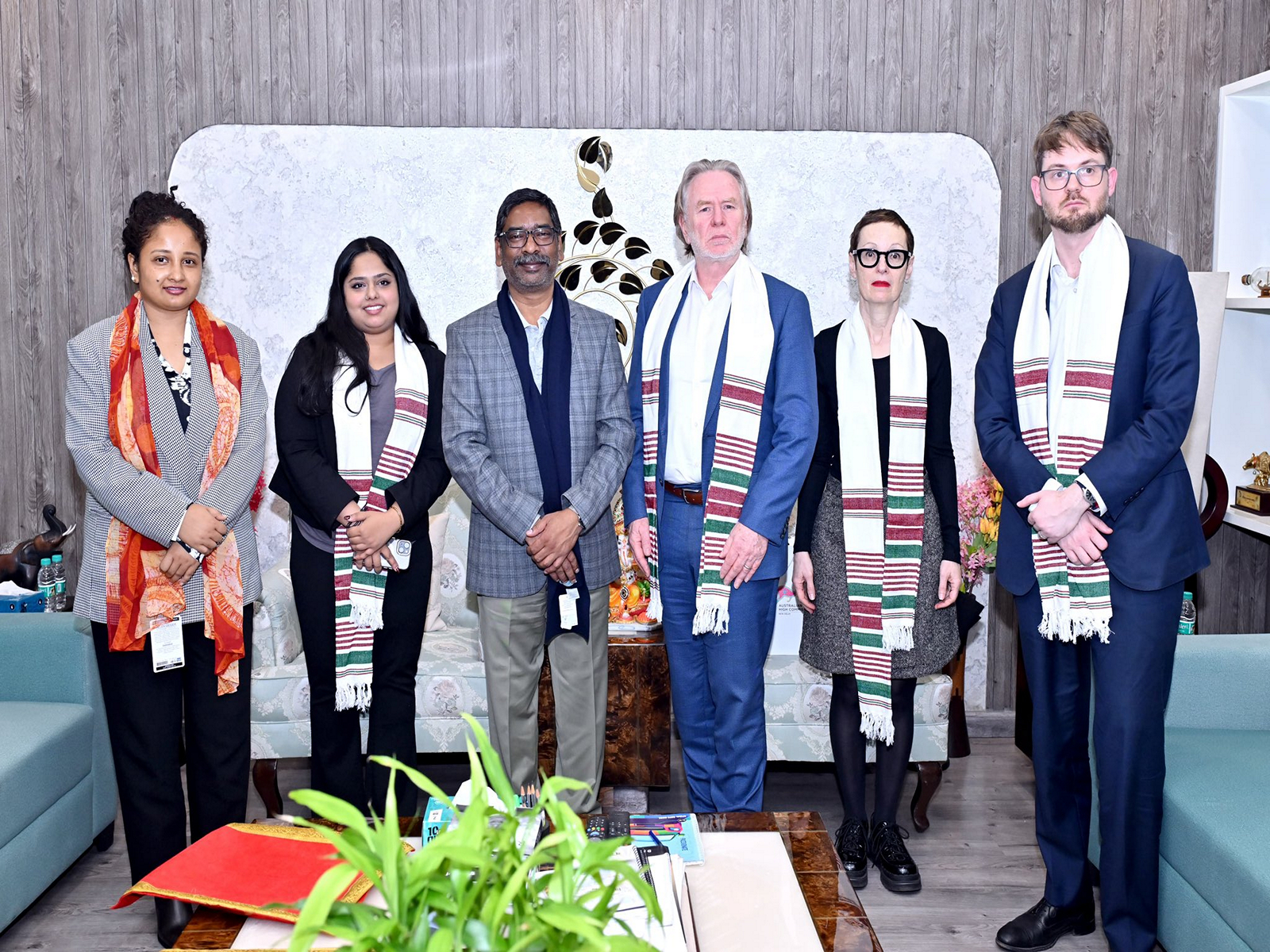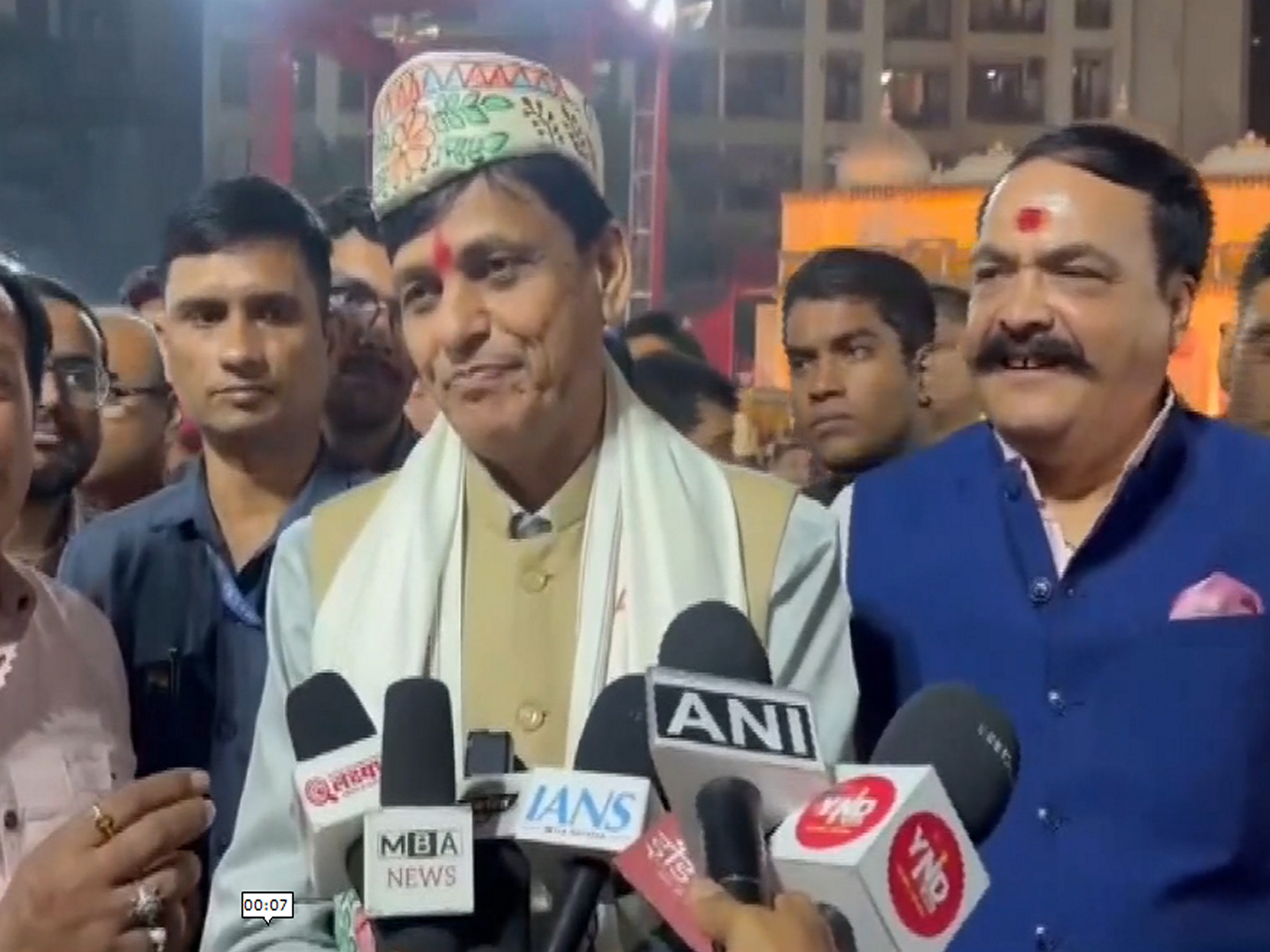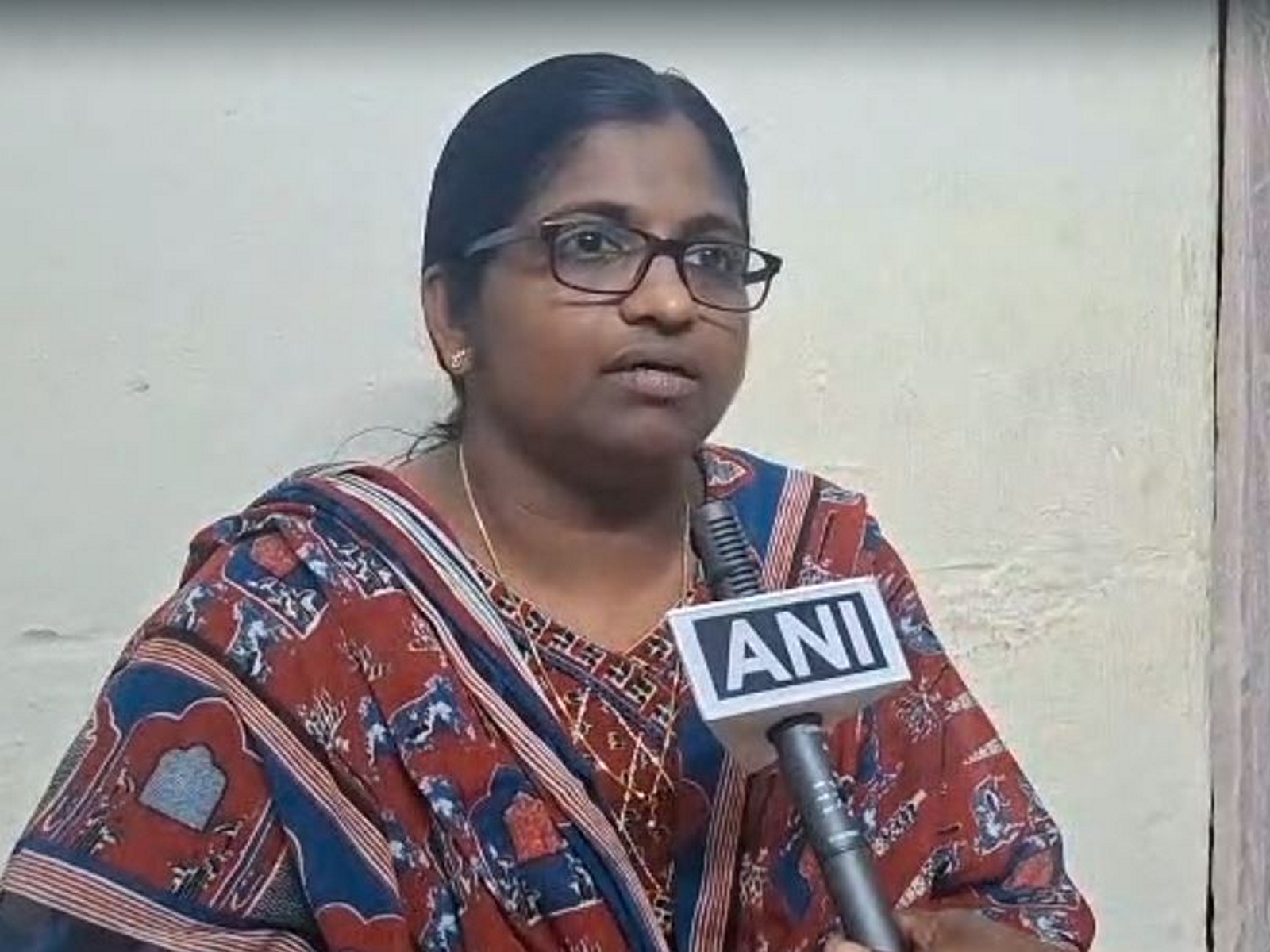Rajnath Singh calls for proactive synergy among armed forces to safeguard nation's interests
Sep 25, 2021

New Delhi [India], September 25 : Union Defence Minister Rajnath Singh on Saturday called for proactive synergy among the Armed Forces in future military strategies and responses to safeguarding the interests of the nation.
His remarks came while addressing the graduates of the 59th National Defence College (NDC) course (2019 batch) during their convocation ceremony in New Delhi on September 25, 2021.
The Defence Minister said that the bold approach of the Government on issues like border disputes and cross-border terrorism has made India stronger in the recent past and it has now assumed a greater global role and responsibility.
Singh reiterated that India is a peace-loving nation, but will give a befitting reply to anyone who threatens its integrity and sovereignty. "Threats to internal and external security will no longer be tolerated. Our actions in Balakot and Galwan are clear signals to all aggressors," he said.
The Defence Minister added that today the world is witness to the destabilising effects of terror and the especially dangerous precedence of violent radical forces attempting to gain legitimacy by creating new normal. He said, now there is widespread realisation amongst responsible nations to come together against the menace of terrorism.
The NDC, he said, can play a key role in fostering a common understanding among friendly countries against terrorism and finding long-term solutions to deal with the menace.
Sharing his views on the situation in Afghanistan, Singh said the developments have highlighted the reality of our times.
"The only certainty about evolving geopolitics is its uncertainty. Changes in state boundaries may not be as frequent today. However, the fast-transforming structure of states and the influence that external powers can have on it is clearly evident," he said.
The Defence Minister emphasised the need to draw lessons from the situation in Afghanistan, far beyond the immediate reverberations being felt in the region and beyond.
"When these events are viewed, it is tempting to believe that terrorism, fear, medieval thoughts and actions, discrimination drawn on the basis of gender, practices that are seeped in inequality and dogmatic thought, can sweep aside the wishes of the people, plural ideas and inclusive structures. Nothing can be farther from reality. And human history is a great teacher in this regard," said Singh.
The Defence Minister further said, "Injustice, however powerful, cannot and will not defeat the collective power of the goodness that is inherent to human existence. This sentiment is evident from an increasing number of world capitals which have lent their voice in favour of liberalism, inclusivity and respect for international norms of governance and behaviour."
Singh exhorted NDC to focus more on the new and fast-emerging areas such as cyber, space, artificial intelligence and big data analytics.
"The world has witnessed a rapid transformation in all these areas of scientific knowledge. This technological progression must be accompanied by its military interpretation within the strategic community," he said.
Referring to the phrase 'Vasudhaiva Kutumbakam' (the world is one family), the Defence Minister stressed on the urgent need to create a unified approach to deal with threats both within the country and globally. He said, be it against terrorism or cyber challenges, success can only come by unifying national diversities. He described the fight against the COVID-19 in recent times as a shining example of unity in diversity and 'Vasudhaiva Kutumbakam'.
Singh reiterated the Government's resolve to achieve 'Aatmanirbharta' in the defence sector, saying that no country that aspires to develop as a knowledge-based economy can sustain such reliance on defence imports.
The Defence Minister underscored the importance of knowledge, wisdom and statecraft and said these guiding principles of NDC hold prime importance in the rapidly changing regional scenario.
"Knowledge allows us to understand the historical, social, geopolitical and economic realities of a country and a region. Wisdom helps interpret this factual understanding to facilitate far-sighted decision making. And, statecraft brings to bear the understanding of strategic thought and culture to everyday realities. It facilitates decision making in pursuit of long-term interests," he said.
Singh lauded NDC for shaping the thoughts of many strategic leaders and practitioners, not only from India but also abroad. He exuded confidence that the graduates of the course would be well equipped to handle all future challenges related to national security.
He appreciated the fact that the college has enhanced its infrastructure and rebranded the academic curriculum, despite the challenges posed by the COVID-19 pandemic. He also lauded the institution of the President's Chair of Excellence, which has given significant impetus to strategic learning and enhanced academic stature.
In his welcome address, NDC Commandant Air Marshal Diptendu Choudhury stated that upon the completion of the NDC course, the graduates would be able to apply a multi-disciplinary and out-of-the-box approach to national issues at the strategic level, both in policy formulation and its execution, something that Kautilya preached almost 2,000 years ago.
He expressed confidence that the graduates would be able to make a difference with a greater understanding of comprehensive national power and the role it plays in nation-building.
On the occasion, the Defence Minister awarded M Phil degrees to 41 graduates of the course. Head of Department, Department of Defence Strategic Studies, University of Madras Prof (Dr) Utham Kumar Jamadhagni and other dignitaries were present on the occasion.
According to an official statement issued by the Ministry of Defence today, the NDC is the highest seat of strategic learning of the country. The prestigious and much sought-after international course at this college provides a trans-disciplinary and comprehensive approach to all aspects of national security and strategy.
As per the ministry, each course comprises of experienced one-star rank and equivalent officers from the Armed Forces, Civil Services and also officers from friendly foreign countries. The one-year course enables the officers to qualify for an M Phil degree in Defence and Strategic Studies from the University of Madras.
Of the 3,999 alumni, many have risen to become Heads of their respective countries and their Armed Forces and served with distinction. The current King of Bhutan, Jigme Khesar Namgyel Wangchuk is an alumnus of NDC.
In India, two NDC alumni are at the apex of national security structures - National Security Advisor Ajit Doval and Chief of Defence Staff, General Bipin Rawat.
